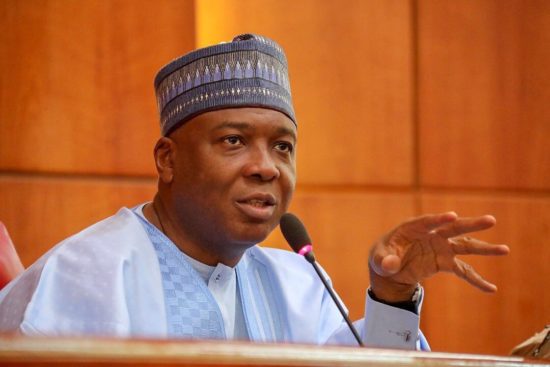The Senate President, Dr Bukola Saraki, has explained why the senate did not confirm the appointment of acting Chairman of Economic and Financial Crimes Commission (EFCC), Ibrahim Magu.
Saraki made the disclosure at the orientation programme organised for Senators-elect and House of Representatives members-elect ahead of the inauguration of 9th National Assembly in Abuja.
Magu had been nominated twice by the presidency but his confirmation as substantive chairman was rejected by the Senate.
Explaining the Senate’s decision to reject the nomination, Saraki said, “The truth really is that the issue of confirmation whether ministerial or other appointments, is done by the entire Senate. Generally, we have an unwritten practice that we would get the input of senators from the state where the appointee hails from before we start the screening process in the Senate. By the powers of the Senate, if such a nominee is rejected, then it is upon the executive to find a new replacement. The issue really is that the Senate has the powers to reject a ministerial nominee.
“In the case of the appointment of the chairman of the EFCC, the powers of the Senate are very clear in the constitution. For any nominee, we are guided by the constitution. It is an appointment made by Mr. President, subject to the confirmation of the Senate, which means the Senate has the powers to either say yes or say no.
“In a situation where the Senate rejects, it is up to the executive at that time to send in a replacement or in some cases, when we have appointment rejected and the executive will re-present before the Senate but if the senators again, took a decision to reject the nominee, the appointment stands rejected.
Read Also: Christian Elders Express Shock At CAN Leadership’s Visit To Buhari
“On getting judicial interpretations of their roles, there are 17 cases in court that have been on now for two years and for one reason or the other, those cases have not moved. I cannot explain what happened. They are cases that have to deal with asking the courts to give judicial interpretations to who has the powers to do one thing or the other. I am sure by the time the judiciary gives the interpretations, there is no doubt about it that it will be clear that it is the Senate that has the powers
“In things like this in a democracy, there must be a political solution, there must be dialogue. I think that is the most important thing. The Senate has the power of confirmation. It is how to manage those issues that are the challenges. There will be many like that in the Ninth Assembly. The question is how the executive and the legislators will work together and find a solution. It is how the relationship between the two arms of government.
“There is also a wrong perception that the leadership of the Senate has those powers. The powers of the presiding officers are in the members. It is the members that decide the leadership of the National Assembly. Most of the decisions especially confirmation, are usually taken by the members. In other countries, the executive there are seen to be lobbying the legislators. When they have a candidate, they will go and lobby to get in their preferred choice appointed.”

